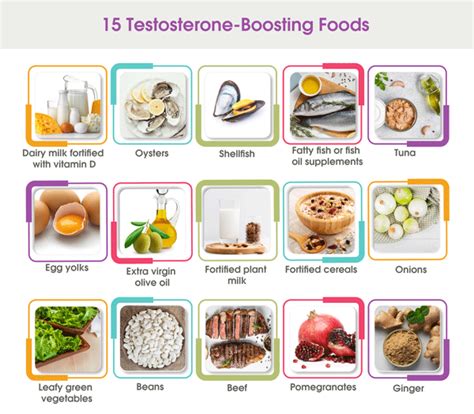Natural ways to boost testosterone for male vitality & performance?

Understanding Testosterone and Its Importance
Testosterone is the primary male sex hormone, playing a crucial role in various aspects of a man’s health and well-being. Beyond its well-known influence on libido and reproductive health, testosterone is vital for maintaining muscle mass, bone density, red blood cell production, fat distribution, and even mood and energy levels. As men age, testosterone levels naturally decline, but lifestyle factors can significantly impact this process. Low testosterone (Low T) can manifest as fatigue, decreased sex drive, difficulty building muscle, increased body fat, and mood disturbances.
While medical interventions exist for clinically low testosterone, many men are interested in natural approaches to support healthy hormone levels and improve vitality. This article explores science-backed natural strategies to help optimize your testosterone production.
Dietary Strategies for Testosterone Optimization
What you eat profoundly impacts your hormonal balance. A diet rich in specific nutrients can support testosterone production, while poor dietary choices can hinder it.
- Healthy Fats: Incorporate monounsaturated and polyunsaturated fats found in avocados, olive oil, nuts, and fatty fish like salmon. These fats are essential precursors for hormone synthesis.
- Zinc-Rich Foods: Zinc is a crucial mineral for testosterone production. Excellent sources include oysters, red meat, poultry, nuts (especially pumpkin seeds), and beans.
- Vitamin D: Often called the “sunshine vitamin,” Vitamin D also functions as a steroid hormone in the body and is strongly linked to testosterone levels. Get adequate sun exposure or consume fatty fish, fortified dairy, and consider a supplement under medical guidance.
- Cruciferous Vegetables: Broccoli, cauliflower, cabbage, and Brussels sprouts contain compounds like Indole-3-Carbinol, which help the body metabolize estrogen, potentially allowing more testosterone to circulate.
- Limit Sugar and Processed Foods: High sugar intake can lead to insulin resistance and increased body fat, both of which can negatively impact testosterone. Processed foods often lack essential nutrients and can contribute to inflammation.

Exercise: The Power of Movement
Regular physical activity is one of the most effective natural testosterone boosters. However, not all exercise is created equal when it comes to hormone optimization.
- Strength Training: Lifting weights, especially compound exercises like squats, deadlifts, bench presses, and rows, has been shown to significantly increase testosterone levels. Aim for 3-4 sessions per week with adequate recovery.
- High-Intensity Interval Training (HIIT): Short bursts of intense exercise followed by brief recovery periods can also stimulate testosterone production and improve overall fitness.
- Avoid Chronic Overtraining: While exercise is beneficial, excessive endurance training or consistently pushing your body to its limits without sufficient recovery can elevate cortisol (a stress hormone), which can suppress testosterone.

Optimize Sleep for Hormone Health
Sleep is a non-negotiable component of hormonal health. Chronic sleep deprivation can drastically reduce testosterone levels.
- Aim for 7-9 Hours: Most adults need 7-9 hours of quality sleep per night. Studies show that even a week of restricted sleep can significantly decrease testosterone.
- Improve Sleep Hygiene: Create a dark, quiet, and cool sleep environment. Avoid screens an hour before bed, limit caffeine and alcohol in the evening, and maintain a consistent sleep schedule.
Stress Management and Testosterone
In today’s fast-paced world, chronic stress is a common culprit behind many health issues, including hormonal imbalances. When stressed, your body produces cortisol, a hormone that directly competes with testosterone. High cortisol levels can suppress testosterone production.
- Mindfulness and Meditation: Practices like meditation, deep breathing exercises, and yoga can help lower cortisol levels and promote relaxation.
- Hobbies and Leisure: Engage in activities you enjoy to unwind and de-stress. Whether it’s reading, spending time in nature, or listening to music, dedicating time to relaxation is crucial.
![🔥 [50+] Calm Desktop Wallpapers | WallpaperSafari](/images/aHR0cHM6Ly90czEubW0uYmluZy5uZXQvdGg/aWQ9T0lQLm50MENnOVNDcTljOFpxWTZyLWc1dUFIYUZqJnBpZD0xNS4x.webp)
Lifestyle Factors and Potential Supplements
Beyond the core pillars of diet, exercise, and sleep, several other lifestyle factors can influence your testosterone levels.
- Maintain a Healthy Weight: Obesity, particularly abdominal fat, can lead to increased estrogen conversion from testosterone, further lowering T levels. Losing excess weight can significantly improve testosterone.
- Avoid Endocrine Disruptors: Be mindful of exposure to chemicals found in plastics (BPA, phthalates), pesticides, and certain personal care products, which can mimic or interfere with hormones.
- Consider Natural Supplements (with caution): Some natural supplements have shown promise in supporting testosterone, though always consult a healthcare professional before starting any new supplement regimen. Examples include Ashwagandha, Fenugreek, and DHEA.

Conclusion
Boosting testosterone naturally is a holistic endeavor that requires commitment to a healthy lifestyle. By optimizing your diet, incorporating regular strength and HIIT exercise, prioritizing quality sleep, effectively managing stress, and being mindful of other lifestyle factors, you can significantly support your body’s natural testosterone production. These changes not only contribute to higher testosterone levels but also lead to improved overall male vitality, energy, mood, and performance in all aspects of life. Always remember to consult with a healthcare professional before making significant changes to your diet, exercise routine, or starting any new supplements, especially if you suspect you have clinically low testosterone.










